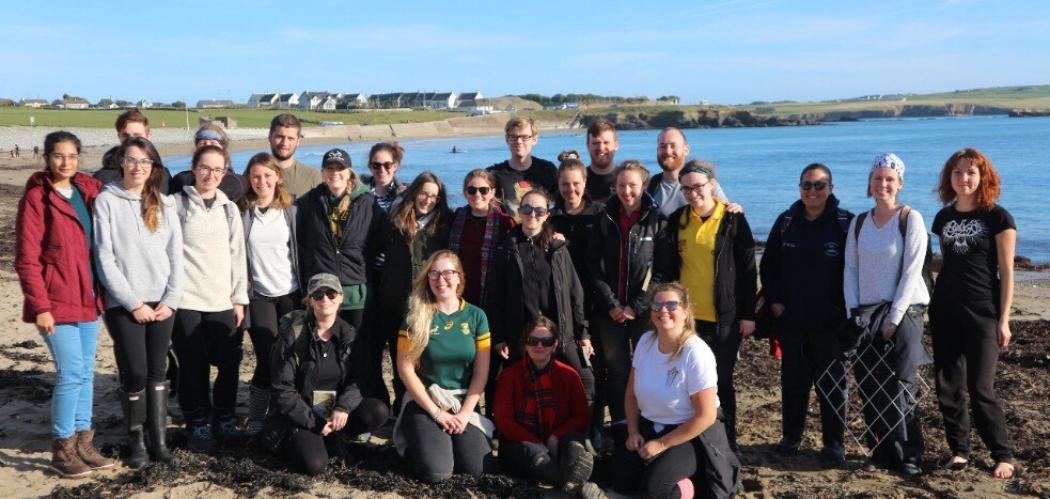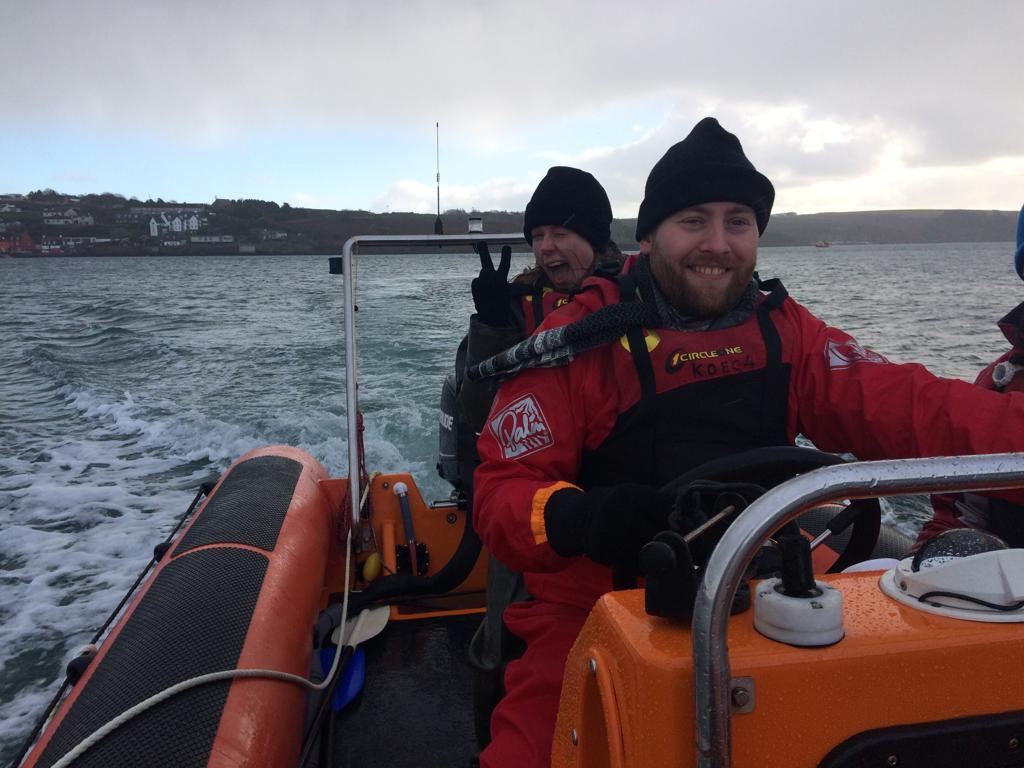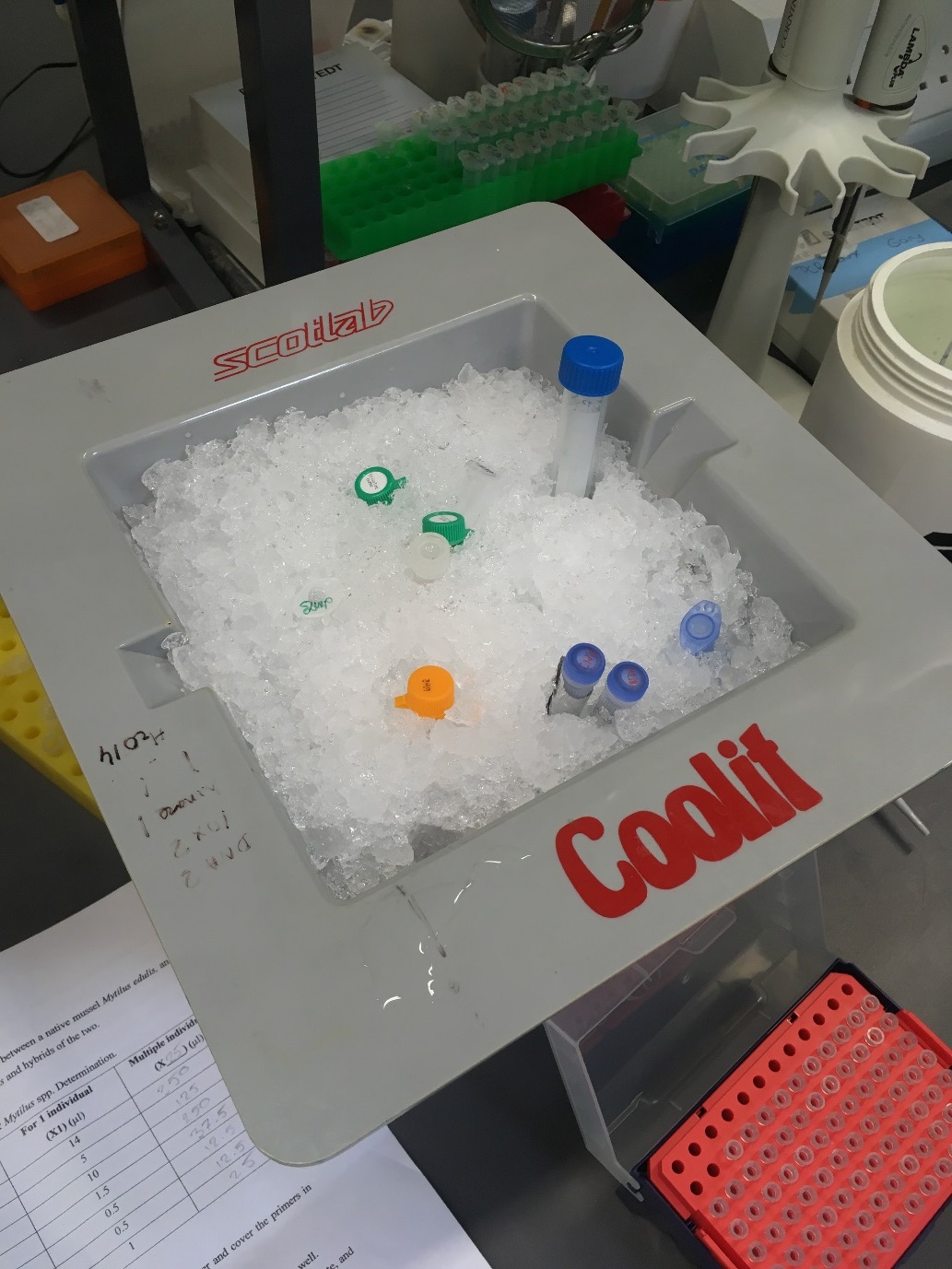Dean Anthony Notaro - MSc Marine Biology
I arrived in Cork two weeks before I was due to start my course. I wanted to give myself some time to get familiar with the city. After I settled in my accommodation, I went to explore. My first stop was the UCC campus. I took a walk around the main campus and was blown away by the beauty of the grounds. The area around the quad, is quite charming and a really nice place to walk around when you are looking for some peace and quiet. The first week of university I managed to attend the UCC new students tour, so I got to learn about the history and story behind each of the buildings around campus.
After viewing the campus, my roommate offered to show me around the city. Together we took in most of the useful sites like shopping centres, book stores, coffee shops etc. I managed to talk with a few locals, who were extremely friendly, and I also had the opportunity to meet some people, who like me had just moved to the city. We exchanged stories and our opinions, and it seems everyone is excited to be here in Cork.
On my first day, like many I imagine, I was feeling a tad bit nervous, but mostly excited. I had that kind of fire in your belly feeling and I was ready to take on the challenging year ahead. I graduated from my undergraduate degree in 2011 and coming back to academia 7 years later was a little daunting at first. To start the day, we were introduced to the academic staff in the school. They each told us about their fields of interest and areas of expertise. After that, we each introduced ourselves, giving some information on our backgrounds. As the day progressed, I quickly got involved with introducing myself to my new classmates and I felt comfortable with where I was by the end of the first day.
The primary reason I chose the MSc Marine Biology course, was due to its practical aspect. Within the first month, we had the chance to visit Ummera Smokehouse in Timoleague, IBM food processing centre in Clonakilty and the Bantry Marine Research station. In each place, we were exposed to different avenues of the marine industry, which broadened my knowledge on the different areas of employment that are possible within the industry.
We had the opportunity to do an ecological impact assessment on Garrettstown shore. Here we spent the day at Garrettstown and we surveyed the rocky and open sea shore, to identify the different marine species there. We were to create a shore profile and identify which species may be mostly affected by raising water temperatures in the area. I also had the opportunity to do some laboratory work around seawater chemistry, aquaculture, looking at filter feeding molluscs and the anatomy of Oysters. I got the chance also to learn some useful statistical packages and programming languages such as R and SPSS.
Check out the online prospectus page for MSc Marine Biology.

MSc Marine Biology students and PhD students with Dr Ruth Ramsay O’Riordan from the school of Biological, Earth & Environmental Sciences (BEES) at University College Cork. Photo taken: Garettstown, Co. Cork.
Dean Anthony Notaro - MSc Marine Biology
Blog Post 2
A week in the life of a postgraduate
Each morning begins with a shower followed by the most important meal of the day, breakfast. Coffee is a must, usually with a side of porridge or Weetabix. After breakfast, I gather my books, notes and laptop and I take the scenic route along the River Lee and walk towards the BEES campus. This is my time for reflecting on yesterday and what is ahead for today. This is also the time when the first cup of Java generally kicks in. As a postgraduate student, each day varies. I could have numerous hours of lectures, I could have practical classes, or I could be heading to the library to spend time working on assignments. There is a combination of lectures, assignments or some form of research to be done and there are always DEADLINES…. did I mention DEADLINES. I have two part time jobs at the UCC library which is quite handy, as I could be sitting at a desk in the library studying and when it’s time to start work, I put on my work t-shirt and start my shift. This is great for when the pressure is really on, as I don’t lose too much study time in transition. In general, my days are compact and intense, but always interesting and rewarding. Tuesday and Thursday evenings are spent running with the UCC Athletics club. These are my evenings to unwind and to take my head out of the books and help balance out the intensity of postgraduate life. There are also the occasional evenings of pizza and pints with my classmates after handing in our big assignments.
Studying MSc Marine biology at UCC has been extremely interesting and engaging from the outset. My level of understanding and awareness relating to marine concepts, marine science and conservation has vastly increased. The most outstanding parts of the course to date have been the modules we have covered, such as: Marine megafauna, Marine fisheries and aquaculture and Marine ecology and conservation. The biggest highlight for me so far was carrying out field research onboard the Celtic Voyager (Ireland’s second largest marine research vessel). For this, we carried out a CTD (conductivity, temperature, depth) analysis, sediment grabs, beam trawl and scallop dredge surveys at four different locations in Cork Harbour. Other outstanding events included obtaining professional certificates at NMCI Ringaskiddy in Short range Marine radio and Sea survival as well as the national powerboat certificate (“driving licence” of power boating) at Kinsale Outdoor education centre.
Some goals for semester two include, applying good time management, as the teaching period is shorter than semester one i.e deadline after deadline. I also want to carry over the skills and knowledge I obtained in the first semester and take advantage of the skills which I will gain this semester, including applications of GIS. I plan to start my literature review and gather information for my research project, which will commence in April. All in all, I am looking forward to the challenges that semester two will bring.

Picture: Driving a 7m RIB with an Evinrude 90HP engine in Kinsale Harbour as part of the National Powerboat certificate with Kinsale Outdoor Education Centre.
Picture: Four Pacific Oysters (Crassostrea gigas) - Possible adult triploid (left), adult diploid (Second from left) and two diploid juveniles (right).
Dean Anthony Notaro - MSc Marine Biology
Blog Post 3
My third and final blog is here. How quickly time flies. Exams are done and it feels wonderful! Part 1 of the MSc Marine Biology is now complete. All the hard work so far has been worthwhile, and I am now progressing to Part 2, the research component. The research component is the part of the master’s that I have been most excited for and I am lucky enough to have secured a research project in an area that is of great interest to me, animal health.
Over the next few months, I will be looking at shellfish health and possible ways to prevent or reduce viral and bacterial infections, specifically in oysters. These months will be filled with reading up on relevant literature, planning and designing trials, meetings with my supervisors, running biological experiments using a multitude of different genetic techniques, as well as writing up my thesis in parallel. I will have the chance to bring together the skills and knowledge I have gained from Part 1 i.e. the lecture series, field trips, practical classes and assignments and apply them to my day to day work in the laboratory. I will get the opportunity to work with several molecular biology techniques such as DNA extraction, PCR, qPCR, Gel electrophoresis as well as getting exposure to working with different photodynamic therapies.
Coinciding with the research project, from May 20th to the 2nd June, I will take part in the Erasmus+ IFiT project, which is a fully-funded, multidisciplinary field course with emphasis on peer and shared learning that takes place in the Algarve, Portugal. The IFiT project will give me an excellent opportunity to take part in an international field course alongside geologists, geographers, zoologists, ecologists, botanists and environmental science students from universities in at least three different EU countries - University College Cork (Ireland), University of Lisbon (Portugal), Osnabrück University (Germany) and CERES.
As I move through the summer months, to add to my already long list of to dos and fun stuff, I will be searching for internships and employment opportunities and sending out multiple job applications. Currently, I have been looking at the job market in Ireland and other European countries as well as Canada. I am searching for positions in all areas of marine biology with the hopes of finding an interesting role in marine immunology or marine health. For now, I will continue to make some connections in the field, through LinkedIn and through the many marine biology groups on social media, where I have already found a lot of useful information and helpful tips on starting out with a career in marine biology.

Picture: Polymerase chain reaction (PCR) preparations

